|
"For already at the beginning of their lives they pass on. The end of the present life is for them the beginning of glory. These then, whom Herod's cruelty tore as sucklings from their mothers' bosom, are justly hailed as "infant martyr flowers"; they were the Church's first blossoms, matured by the frost of persecution during the cold winter of unbelief." St. Augustine
Twinkling lights adorn front porches; snowflakes fall softly to the earth; jingle bells sound from every street corner; and children’s voices sing praise in memory of the Savior’s birth as Christmas comes bustling into our lives. And as I watch and listen, I’m reminded that there are many voices that won’t be joining that chorus, at least not audibly. Christmas is one of my favorite times of year, but it also brings much sadness along with it as I remember my little brother who once again will not be joining us to celebrate this joyous feast. This pain is manifested in a deep way as much joy is to be shared by many. I don’t always associate Christmas as a time to bear my cross and follow Christ; after all, this is a joyous occasion. It’s a time to celebrate Jesus’ birth, not to mourn his death. This year I can’t help but think of the cross as I find myself remembering the deep sorrow and loneliness of losing someone so dear to me. Questions flood my mind of why my little brother, so innocent and so little, had to suffer stillbirth and die. As I reflect on this experience of powerlessness, I am reminded of those mothers who two thousand years ago lost their sons as Herod viciously sought to destroy Jesus. During the Christmas Season, our Church has a beautiful tradition of honoring those early martyrs, the Holy Innocents. Just as my own parents were devastated at the loss of my brother, I know that these mothers and fathers, too, felt the almost unbearable sorrow and sense of helplessness of losing a child. This senseless loss is my cross, as I can imagine it is a struggle for anyone who has lost a loved one, and yet Jesus doesn’t leave me alone for long. Words of St. Augustine come rushing into my head, comforting me: “For almighty God…because he is supremely good, would never allow any evil whatsoever to exist in his works if he were not so all-powerful and good as to cause good to emerge from evil itself.”[1] Hope. Reassurance. The cycle of death and life revealed. And then I realize why Christmas is so dear to me. Christmas manifests the time to celebrate life and to remember that good is ever being born into this world. Through his Beloved Son, God lovingly demonstrates His desire for good to triumph. As St. Augustine reminded me, God not only desires good but God always brings good out of evil situations, even though we might not always recognize it. My mind is amazed as I ponder the mystery of the Incarnation. Gratitude fills my heart as I feel Christ with me a midst my joy and my sorrow. The beautiful gift of a child, of the God incarnate, sent to us to share in our life and to bring good out of evil in a truly personal way. Church bells ring; incense lifts gracefully to the heavens; angels proclaim Good News of great joy; the Body of Christ is broken and shared; and I know in my heart that my little brother lives. Amy Winkler serves as an Echo Faith Formation Apprentice in the Diocese of Camden, NJ [1] St. Augustine, Enchiridion, 3, 11; PL 40, 236 as cited in CCC #312.
0 Comments
Dear Brothers and Sisters,
We have just heard in the Gospel the message given by the angels to the shepherds during that Holy Night, a message which the Church now proclaims to us: "To you is born this day in the city of David a Savior, who is Christ the Lord. And this will be a sign for you: you will find a babe wrapped in swaddling clothes and lying in a manger" (Lk 2:11-12). Nothing miraculous, nothing extraordinary, nothing magnificent is given to the shepherds as a sign. All they will see is a child wrapped in swaddling clothes, one who, like all children, needs a mother’s care; a child born in a stable, who therefore lies not in a cradle but in a manger. God’s sign is the baby in need of help and in poverty. Only in their hearts will the shepherds be able to see that this baby fulfils the promise of the prophet Isaiah, which we heard in the first reading: "For to us a child is born, to us a son is given; and the government will be upon his shoulder" (Is 9:5). Exactly the same sign has been given to us. We too are invited by the angel of God, through the message of the Gospel, to set out in our hearts to see the child lying in the manger. God’s sign is simplicity. God’s sign is the baby. God’s sign is that he makes himself small for us. This is how he reigns. He does not come with power and outward splendour. He comes as a baby – defenceless and in need of our help. He does not want to overwhelm us with his strength. He takes away our fear of his greatness. He asks for our love: so he makes himself a child. He wants nothing other from us than our love, through which we spontaneously learn to enter into his feelings, his thoughts and his will – we learn to live with him and to practise with him that humility of renunciation that belongs to the very essence of love. God made himself small so that we could understand him, welcome him, and love him. […] The Son himself is the Word, the Logos; the eternal Word became small – small enough to fit into a manger. He became a child, so that the Word could be grasped by us. In this way God teaches us to love the little ones. In this way he teaches us to love the weak. In this way he teaches us respect for children. The child of Bethlehem directs our gaze towards all children who suffer and are abused in the world, the born and the unborn. Towards children who are placed as soldiers in a violent world; towards children who have to beg; towards children who suffer deprivation and hunger; towards children who are unloved. In all of these it is the Child of Bethlehem who is crying out to us; it is the God who has become small who appeals to us. Let us pray this night that the brightness of God’s love may enfold all these children. Let us ask God to help us do our part so that the dignity of children may be respected. May they all experience the light of love, which mankind needs so much more than the material necessities of life. […] All this is conveyed by the sign that was given to the shepherds and is given also to us: the child born for us, the child in whom God became small for us. Let us ask the Lord to grant us the grace of looking upon the crib this night with the simplicity of the shepherds, so as to receive the joy with which they returned home (cf. Lk 2:20). Let us ask him to give us the humility and the faith with which Saint Joseph looked upon the child that Mary had conceived by the Holy Spirit. Let us ask the Lord to let us look upon him with that same love with which Mary saw him. And let us pray that in this way the light that the shepherds saw will shine upon us too, and that what the angels sang that night will be accomplished throughout the world: "Glory to God in the highest, and on earth peace among men with whom he is pleased." Amen! An abridged version of the homily given by Pope Benedict XVI at the Christmas Midnight Mass 2006 in St. Peter’s Basilica. “God became man so that man might become God” ~St. Augustine, Sermo 13 de Tempore
I recently went to a Christmas open house at the home of my housemate’s parishioners. Like most events during our two years of service, heads turn when they see a group of four twenty-something year-olds enter the room where the median age is 60+. The questions start flying: “Who are you?” “Why are you here?” “You go to Notre Dame- did you watch the last game?” “Are you single?” “Have you met my grandson?” The one that always gets me is some form of, “…wait, you’re 23 and you want to be a practicing Catholic?” Many times, not wanting to get too deep too fast, I simply shrug and say “Yeah, I must be crazy but I love our faith.” This time, maybe due to the Christmas spirit in the air, I could not contain myself and I blurted out- “THE INCARNATION!” As the woman stared at me and my housemates continued the conversation, I was left thinking; how could someone not want to be Catholic when we have the doctrine of the Incarnation? How could I ever leave a faith where I am deeply loved, completely known, and have the ability to not only know God but bring about His Kingdom in the here and now? In just a few days at Christmas Mass we will hear the Word proclaimed and we will hear that this Word became flesh in the form of a babe. It is tempting for us to sit at Mass thinking of all the things we have going on that day: the food to cook, the family to visit, the last minute gift to buy for the cousin we forgot about. Yet, at Christmas Mass we are told of a most unique reality, that God became human! This is RADICAL. No faith outside of Christianity professes that God took on human form out of love to unite himself with his creation. The Pastoral Constitution on the Church in the Modern World writes that “by his incarnation the Son of God has united himself in some fashion with every human. He worked with human hands, he thought with a human mind, acted by a human choice, and loved with a human heart. Born of the Virgin Mary, he has truly been made one of us, like us in all things except sin” (Gaudium et spes §22) ‘ Because of the Incarnation, Christ knows us completely. He knows our pain, he knows how we feel, and he knows what it is like to endure the daily realities of being human. But the Incarnation goes beyond even this great gift. God, in becoming human, transforms human tasks that simply get us from point “A” to point “B,” to tasks that are doing the will of God and making God manifest. As St. Augustine puts it, "God became man so that man might become God". REJOICE this Christmas season for we are given the news that we can become God! In the humble birth of a babe, the Word became flesh and our lives were transformed! Live with the knowledge that you are deeply loved and act in such a way that God is made present- this is challenge the Incarnation gives to us. Let us accept this challenge and live our Catholic identity with great JOY knowing the truths that the doctrine of the Incarnation makes possible. Pam Tremblay is the Blog Editor for the Catholic Apostolate Center. Some years ago, a dear friend and I began what we would term our "Advent Tradition." We would do something to celebrate Christmas before we both left Washington, D.C. for the holiday. (I hope that sounds as ridiculous to you as it does to me…) That year, we went to see Messiah at the Kennedy Center. It was our first time seeing Handel's oratorio, heard over and over in concert halls across the world in the days leading up to Christmas. After the singing of the "Hallelujah Chorus," my friend leaned over to me and said, "I thought that was supposed to be a Christmas song, but we had to wait until Easter for them to break it out."
Advent has always occupied a special place in my imagination. Initially, I'm sure, it was because of those quintessential Advent practices. We had an evergreen wreath with four candles, a new one lit each week (when do we light the pink one??). We sang songs at church that we didn't hear at any other time of the year. The rest of the world was tiring of "All I Want for Christmas is You" by mid-December and, in church at least, we hadn't heard one strain of "O Come, All Ye Faithful." Resisting the temptation to peek behind the doors of our Advent calendar taught me something about patience and delayed gratification. What I came to realize, though, is that Advent, with all of these little traditions, encapsulates the tension of living the Christian life. We live in the here and now, knowing that Christ in his first coming has sanctified all of our existence, but longing for the day when he will return to us. Longing for the day when the confusion and struggles of this life will be no more, when mountains will be lowered and valleys filled, when the lion will lie down with the lamb, and when peace will reign. Living in Advent is living in tension - aware of what is our past and what we long our future to be. Every day we live in the Advent tension of life and death, of suffering and wholeness, of love and loss, of peace and violence, of acceptance and rejection, of excess and poverty, of oneness and loneliness, of questions and surety, of hope and doubt. The question is, do we welcome Christ into this tension? As my friend and I walked out of the Kennedy Center that night, I realized that, despite an attempt at celebrating Christmas, we glimpsed an Advent moment. We were reminded, one more time, that without the Passion, we could not shout "Hallelujah!" The tension of Advent surrounds us, but how well do we allow Christ to enter into that uncertainty and woundedness? If we do welcome Christ into our tension, we also welcome the new life that Christ brings with his Resurrection. That's an Advent worth celebrating. David Pennington is the Associate Campus Minister for Liturgy and Worship at The Catholic University of America. I hope everyone has been enjoying the best season of the year! While secular Christmas music and decor can be nice (and luckily, because they’re ubiquitous), I am referring to the liturgical season of Advent. My friends believe Advent to be my favorite time of year because it typically needs considerable defense against the encroachment of the Christmas season, and I am happy to defend it. We need Advent. In my last post, I stated that if we don’t make time to consider consciously what vision we want to move towards, we’ll never move towards it. Advent is the season during which the Church encourages us to do just that.
So allow me to profess my love for this season. This profession might seem fairly theologically-minded, but I’m a firm believer that thoroughly theological reflection is often eminently practical - when we reflect on our vision, our subsequent actions reflect whether or not we truly envision something important. Looking forward to Christmas alone is the small-minded view of Advent. Yet somehow, it’s the view that even this well-catechized Catholic girl espoused until college – and I don’t think I was alone. Certainly, Christmas is one thing for which we’re preparing. Through our Christmas liturgies, we want to adequately remember and celebrate the miraculous divine self-emptying gift that is the Incarnation, and as always, the salvation that resulted from it. Most Advent calendars and other such aids help us towards this goal. However, when I listen to the Advent liturgies, I hear a different exhortation. The first Sunday alone, we heard of eternal justice, power and great glory, and were told, “Your redemption is at hand.” Even if I listen just to the Lord’s Prayer, the first half expresses our hope for the fulfillment of several things which the original Christmas enabled. These Scriptures point me toward the greater reality for which we are currently preparing: the eschaton, or the reign of God on earth. I’ve always been fascinated by the concept of the eschaton. The Kingdom of God is here already? But not yet? It is “at hand”? What does this language of faith mean? Simple. In one of his homilies on Ezekiel, Pope Gregory the Great compares the joy we have now to the joy in store: “The fire of love which begins to burn here on earth, flares up more fiercely with love of God when he who is loved is seen.” Already, we can welcome the fire of Christ’s love into our hearts. But not yet - that love gets inexpressibly better. Advent is a season of hope, and the true beauty of hope is that we believe one day it will be fulfilled. The greatness of Advent is that eventually it will become obsolete. Take a minute with me this Advent to think about our vision, the Kingdom of God; All injustices will be made right. We will be living with God, in a world without end. We will no longer get in our own way and separate ourselves from Him. We will glorify Him as we should. There will be no holds barred from His all-encompassing love. This is what we wait for. This is our hope. This is the reality of which Advent reminds us, provided we don’t skip past it. How can we be anything but joyful? Laura Berlage serves as an Echo Faith Formation Apprentice in the Diocese of Camden, NJ Today is the Solemnity of the Immaculate Conception, a great feast day for the Church in the United States. Buona festa!
At first glance, many might think we’re celebrating Jesus’ conception, but that’s the Feast of the Annunciation on March 25th, nine months before Christmas. Today is actually a great Marian feast – commemorating that Mary, Mother of the Savior, was, as Blessed Pius XI procliamed “from the first moment of her conception, by a singular grace and privilege of almighty God and by virtue of the merits of Jesus Christ, Savior of the human race, preserved immune from all stain of original sin” (Pius IX, Ineffabilis Deus). We celebrate her birth nine months later on September 8th. This is a great American feast day because from the beginnings of the Catholic Church in America, Bishop John Carroll consecrated the United States to the Immaculate Conception in 1792 and the bishops unanimously affirmed her as Patroness of our country in 1846. Blessed Pius XI approved their choice and eight years later declared as infallible the dogma of the Immaculate Conception. Less than a century later, the largest Catholic Church in the United States was dedicated to the Immaculate Conception. When I was a freshman in college, some upperclassmen friends from the Catholic Student Center took me to this church, the Basilica of the National Shrine of the Immaculate Conception, for the first time on December 8th. I was in awe! The church represents the United States well – just like our nation it is a melting pot of various ethnic shrines from around the world honoring Mary under various titles and most of all the title Immaculate Conception. Advent has just started (we’re only a week in), and on the path to Christmas this feast reminds us of the plan God has for us and His infinite love. As the Catechism states, “the Father blessed Mary more than any other created person ‘in Christ with every spiritual blessing in the heavenly places’ and chose her ‘in Christ before the foundation of the world, to be holy and blameless before him in love’” (CCC 492). Through this feast day, as always, Mary leads us to Jesus – calling us to prepare our hearts for Him. As the prime example of motherhood, Mary is the first to believe in her son, and she encourages him in his first public ministry at the wedding feast of Cana. As we prepare the way of the Lord this Advent we should listen to Mary’s words to the wedding servants: “Do whatever he tells you.” As is etched in the stone walls of the Miraculous Medal Shrine at the National Shrine: “O Mary, conceived without sin, pray for us who have recourse to thee.” Nick Wagman is the Project Management & IT Coordinator for the Catholic Apostolate Center. Liturgy is just exhilarating! What could give you more of a spiritual rush than a thirty minute homily being read straight from the page, a cantor who sings with the voice of an angelic chicken, an altar server who must be awakened from her mid-Mass nap to bring the Missal to the altar, and a lector who proclaims the Word of God with monotone gusto and the speed of a snail?
Okay, yes, liturgy on the surface can be quite unexciting. We can often leave Mass unnourished, and critiquing everything that left us unsatisfied. Yet, everything that we critique, everything that leaves us unsatisfied, is what is essential to liturgy itself. Liturgy is a reflection of us, the faithful. So, perhaps, we are quite unexciting; however, I don’t believe this is the case. I think liturgy takes on a different type of excitement, an excitement that fulfills us in a way that nothing of this world can compare to. There are many times when I’m having a bad day, and I hope and pray that a large McDonald’s chocolate shake will give me the nourishment and comfort that I need to continue on. As I sit in the drive-thru line, I’m excited about my chocolate shake to the point where I can even taste it! Ten minutes later, after consuming 22 fl oz. of ice cream goodness, I find myself sick and even more unnourished than before. The excitement of the chocolate shake is an excitement of this world that will never last. It does not even come close to the nourishment and excitement that the Eucharist brings to those who believe. Everything we do flows from liturgy. Sacrosanctum Concilium (Constitution on the Sacred Liturgy) says that “the liturgy is the summit toward which the activity of the church is directed; it is also the font from which all her power flows” (SC 10). Just as we bring bread and wine to the Altar to be transformed into the Body and Blood of Christ, when we come forward to receive Christ, we bring our very selves to the Altar of God to be transformed and commissioned to Christ’s ministry on earth. This has been the purpose of Eucharistic liturgy since the beginning of the Church. In the second century, Justin Martyr defended the Eucharistic practices of the Church by stating the following: “through the word of prayer that comes from God, the food over which the Eucharist has been spoken becomes the flesh and blood of the incarnate Jesus, in order to nourish and transform our flesh and blood” (Apologia I, 65-66). We are unable to do Christ’s ministry here on earth without the fruits of our liturgical worship. Every time we celebrate Mass, we are coming to the source, the origin, of all life and ministry. How exciting is that? If we truly understand that our Eucharistic celebration is where it all begins, then no boring homily, no awful cantor, no napping server, and no monotone lector can ever lesson the excitement that abounds beneath the surface of liturgy. No matter what liturgical experience we may have on the surface, the excitement of liturgy should pour forth into our lives, helping us to engage in the ministry that Jesus established for us on earth. As I mentioned, liturgy is a reflection of us, the faithful. It is us doing the work of God, on behalf of God and for God’s people. Because we are only human, liturgy may not live up to the idea of excitement that we are used to. However, liturgy is home to a different excitement, a lasting excitement, an excitement that will always be present. It’s just a question of whether we’ve come to Mass open to this excitement. Have we come to Mass for a chocolate shake, or have we come to be sent forth to proclaim the Gospel of the Lord? Stephen Schad is working towards his MA in Liturgical Studies from the University of Notre Dame, and is currently the Director of Liturgy and Music at Saint Maximilian Kolbe Catholic Community in Houston, TX. Without a doubt, the Gospel of John is my favorite book in the Bible. I love the mixture of philosophy and poetry in Jesus’ monologues. It is beautiful how it captures the whole of Salvation History. And it seems that it has quite possibly some of most quotable and recognizable verses in all of Scripture such as Jn. 3:16. Yet the simplest reason is that it contains the profound dialogue that Jesus and St. Peter have post-Resurrection in the 21st chapter.
The scene is simple: Jesus and Peter are sharing a meal on the shore of the Sea of Galilee. Jesus asks a seemingly simple question especially for a man who is supposed to be the “rock” (Mt. 16:18) of the Church- “Do you love me?” Peter affirms his love for Jesus and then Jesus proclaims, “feed my sheep”. This sequence happens two more times, which shows Jesus’ mercy and sense of humor. As you probably know, Peter denied Jesus three times rather than stand up for his faith and Savior. This is Jesus allowing Peter to make up for his threefold denial with a threefold affirmation. Unfortunately, the English translation does not fully capture the drama of this story and thus, we must look to the original Greek. The Greeks had three words for our word, “Love”: Philia (Friendship), Eros (Sexual Love), and Agape (Selfless, Gift-Love). In the context of this story, Jesus asks Peter, “Do you Agape me?” In his shame, Peter can only respond, “I Philia you” or “I am your friend.” While Jesus loves Peter with his whole heart, Peter is a wounded human. On the third try, Jesus meets Peter at his level and asks if they are friends. To this, Peter can agree. From November 5 to 17, 2012, I had the tremendous opportunity to be part of a pilgrimage to the Middle East. What made the trip special was that I got to spend the time with my mom, who has been a great role model and exemplar of sacrifice and faith. And while seeing the Pyramids in Egypt and Petra in Jordan were great, the part that I was most excited for was the Holy Land. One of the places that we went to was the Church of the Primacy of St. Peter, where it is said that Jesus and St. Peter had this final conversation as told in Jn. 21. Like many of the other churches that we went to in Israel, I automatically felt the sacred presence of the Spirit. I went into the Church first to say a prayer and then walked along the shore of the Sea. I was so utterly moved to be standing on the ground and touching the water where Jesus and Peter shared this intimate moment. I was speechless to be present there and just gave thanks for this blessing. The words that I kept praying were the words of Jesus’ command to Peter: Feed my sheep. All my life, I viewed my Catholic faith as an opportunity to be a role model for others. I participated in parish ministry through the Echo Program and taught high school Religion for two years. Now, I am taking a year off to discern my next step in my life journey and where exactly God is calling me to serve his people, to “feed [his] sheep”. Wherever I end up, I will be grateful and remember the incredible time that I spent on the shore of Galilee. The place that Jesus asked Peter a simple question for all of humanity, “Do you love me?” Tae Kang has his MA in Theology from The University of Notre Dame through the Echo Faith Formation Program and has worked both as a Lay Ecclesial Minister in a Parish and as a High School Religion Teacher. |
Details
Archives
July 2024
Categories
All
|
About |
Media |
© COPYRIGHT 2024 | ALL RIGHTS RESERVED

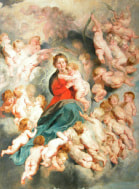
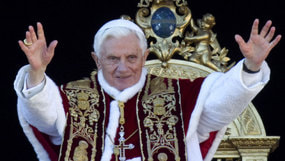
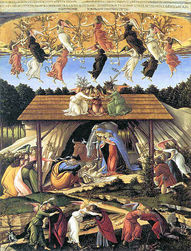
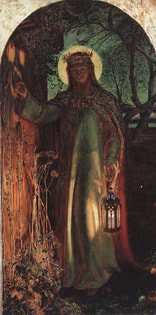
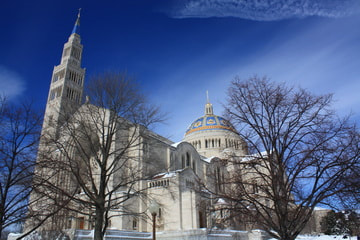


 RSS Feed
RSS Feed